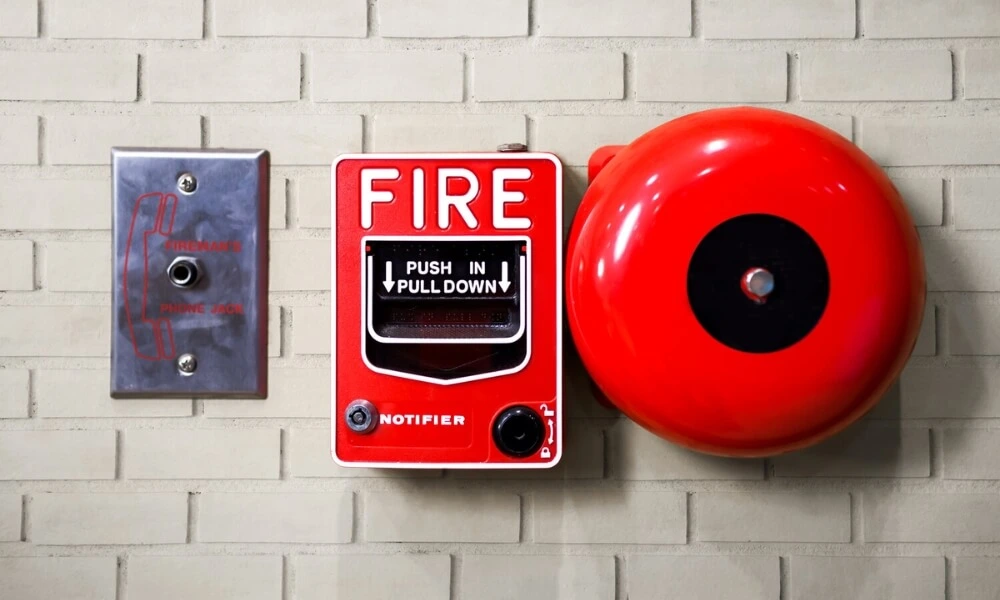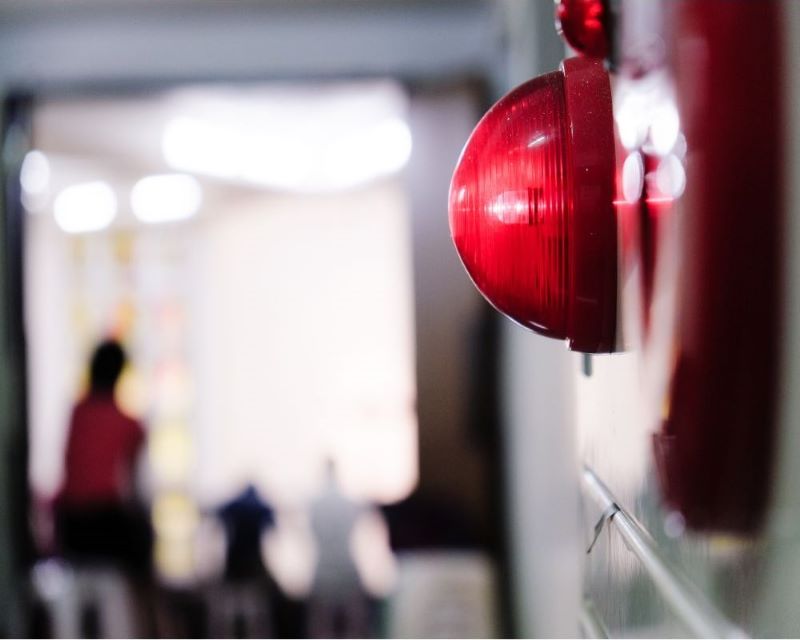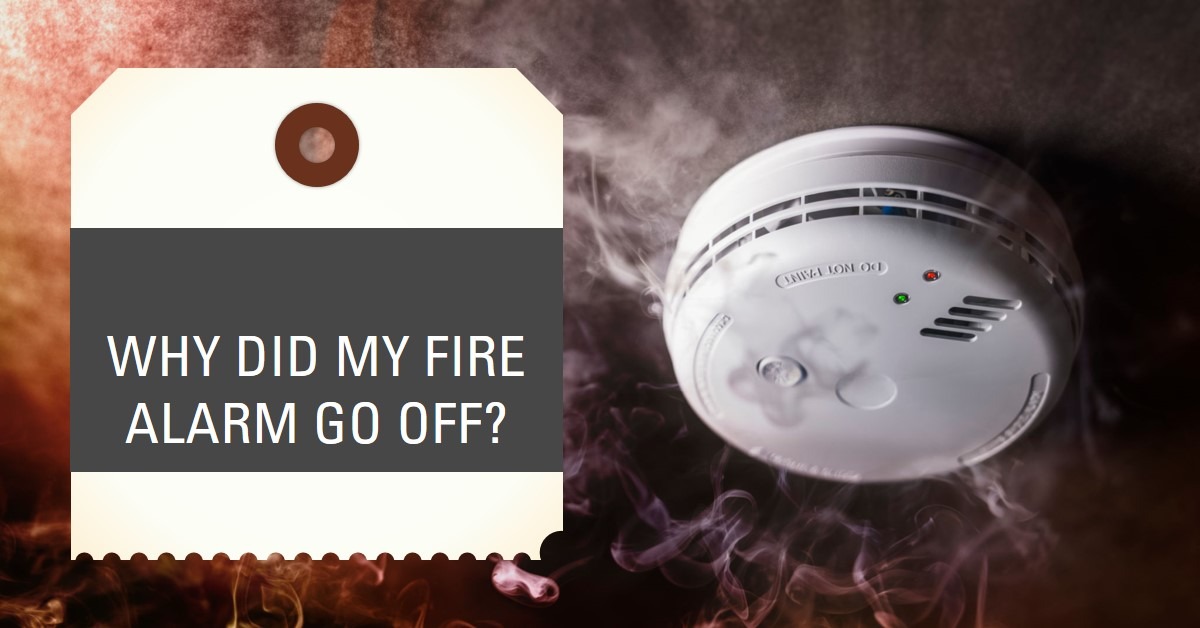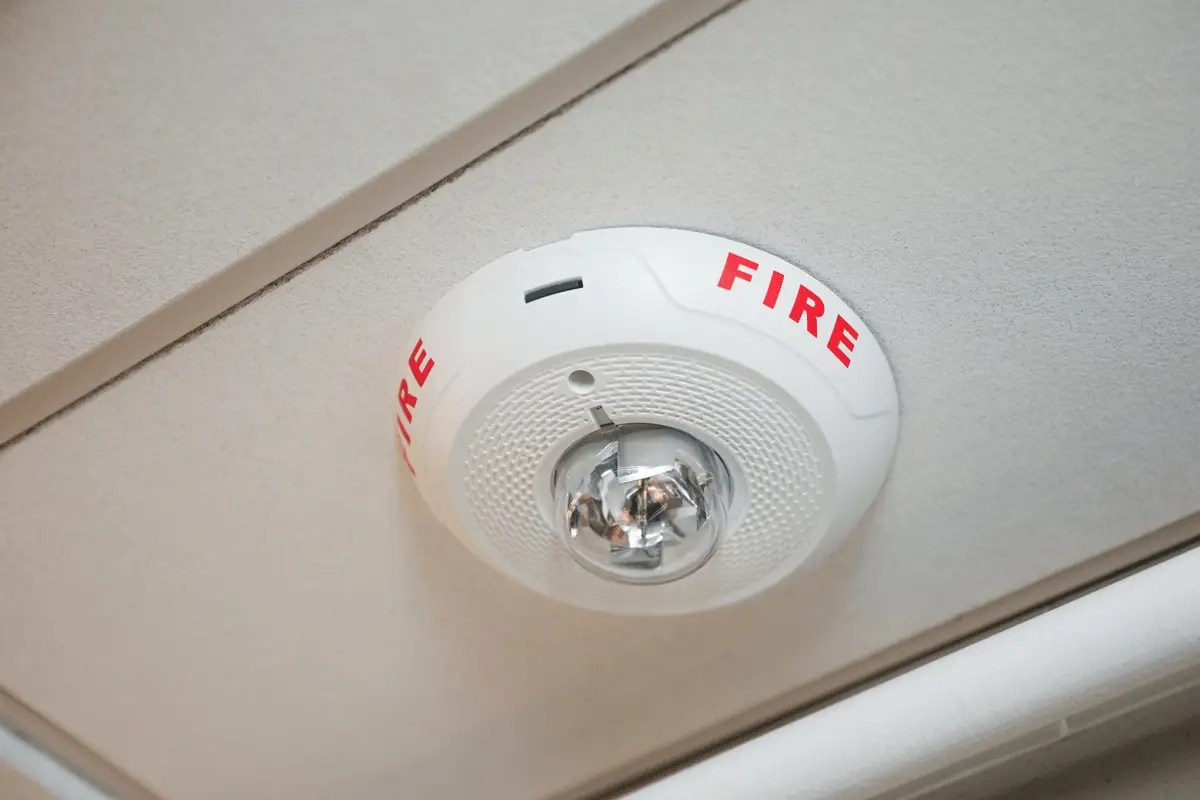Why Would A Fire Alarm Randomly Go Off
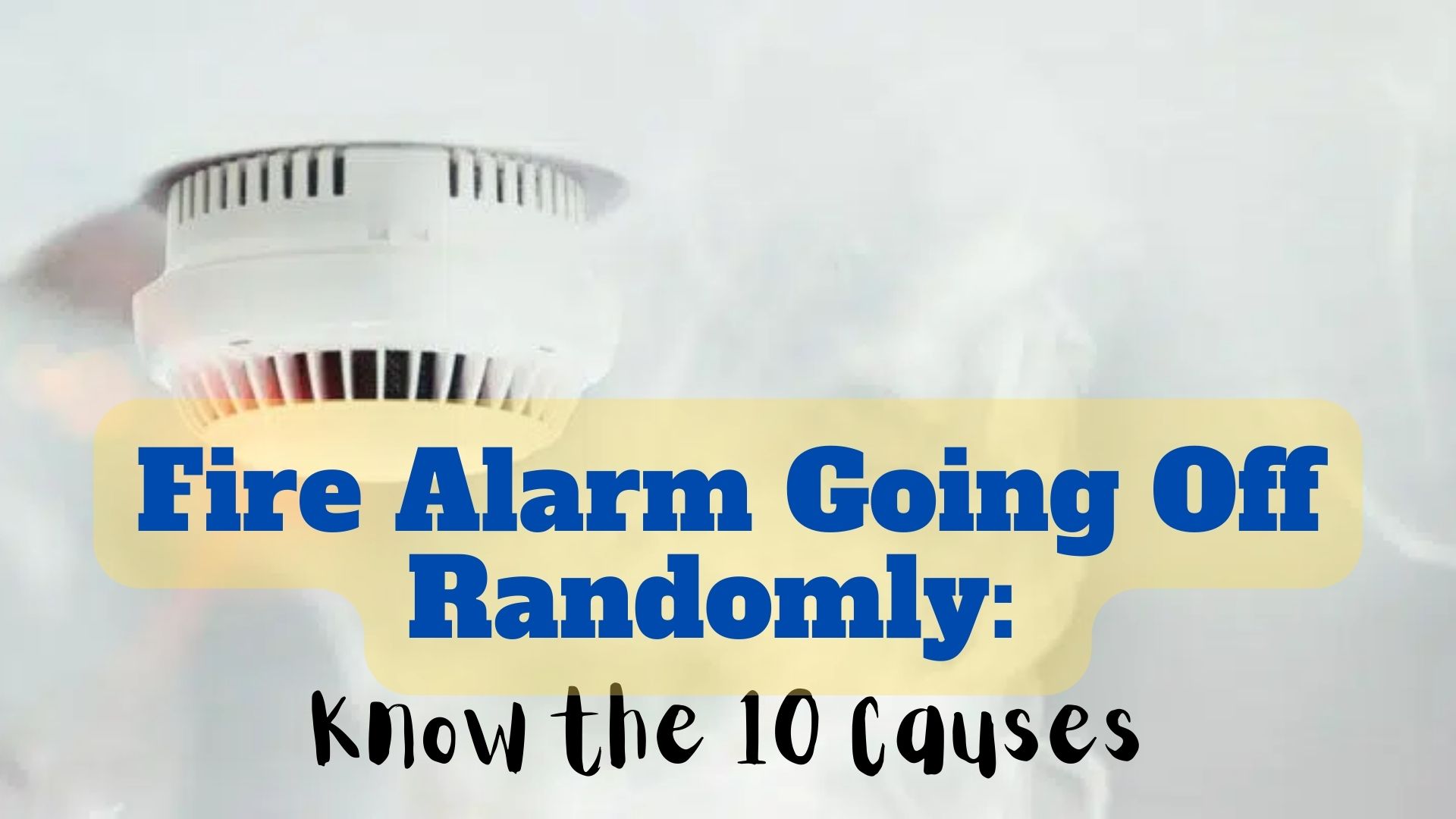
Why is my Fire Alarm Randomly Going Off? A Comprehensive Guide
A chirping or blaring fire alarm can be incredibly unsettling, especially when there's no apparent fire. While a malfunctioning fire alarm can be a nuisance, ignoring it is never an option. Understanding the common causes of false alarms can help you troubleshoot the issue and prevent future occurrences, ensuring your home's safety. For homeowners, real estate investors, and contractors, knowing the ins and outs of fire alarm systems is essential, especially when evaluating properties or advising clients.
Common Culprits Behind False Alarms
Several factors can trigger a false fire alarm. Let's break down the most frequent causes:
- Low or Dead Batteries: This is the most common reason for a fire alarm to chirp intermittently. Fire alarms often use batteries as a backup power source, and when the battery is low, the alarm will signal with a chirp, usually every minute or so.
- Dust and Debris: Dust particles, cobwebs, and even small insects can accumulate inside the alarm, interfering with its sensors. This can cause the alarm to misinterpret the presence of smoke or other combustion byproducts.
- Steam or Humidity: Smoke detectors are sensitive to airborne particles, and steam from showers, cooking, or humid environments can sometimes trigger a false alarm. This is especially true for ionization smoke alarms.
- Cooking Fumes: Burning food, especially in the kitchen, is a frequent trigger for fire alarms. Even without visible smoke, the fumes from cooking can activate the sensors.
- Chemical Sprays: Aerosol sprays like hairspray, cleaning products, or even bug spray can release particles into the air that are mistaken for smoke.
- Malfunctioning Sensor: Like any electronic device, fire alarms can malfunction over time. Sensors can become overly sensitive or produce false readings.
- Age: Fire alarms have a limited lifespan, typically around 10 years. After this period, the sensors can degrade, leading to frequent false alarms.
- Improper Installation: Placing a smoke detector too close to a kitchen, bathroom, or other area with high humidity or fumes can significantly increase the likelihood of false alarms.
- Electrical Issues: Power surges or fluctuations in the electrical system can sometimes trigger a fire alarm, especially if it's hardwired.
Types of Fire Alarms and Their Sensitivities
Different types of fire alarms employ different technologies, making them susceptible to various triggers.
- Ionization Smoke Alarms: These alarms are generally more sensitive to small particles produced by fast-flaming fires. They use a radioactive source to ionize the air, and smoke particles disrupt this ionization, triggering the alarm. Due to their sensitivity, they are more prone to false alarms from cooking fumes or steam.
- Photoelectric Smoke Alarms: These alarms use a light beam and a sensor. When smoke enters the chamber, it scatters the light beam, which is then detected by the sensor, triggering the alarm. Photoelectric alarms are generally better at detecting slow-smoldering fires that produce larger particles. They are less prone to false alarms from cooking fumes.
- Combination Smoke and Carbon Monoxide Alarms: These alarms detect both smoke and carbon monoxide, a deadly, odorless gas. They offer comprehensive protection but require careful placement and maintenance.
Troubleshooting a Randomly Going Off Fire Alarm
When your fire alarm unexpectedly sounds, here’s a systematic approach to diagnose and resolve the issue:
- Safety First: Ensure there is no actual fire or carbon monoxide threat. If you smell smoke or suspect a fire, evacuate immediately and call emergency services.
- Identify the Source: Determine which alarm is sounding. Many systems have interconnected alarms, so identifying the initiating alarm is crucial.
- Check the Batteries: Replace the batteries in the affected alarm, even if they seem new. Low batteries are the most frequent cause.
- Clean the Alarm: Use a vacuum cleaner with a brush attachment to gently remove dust and debris from the alarm's exterior and interior.
- Ventilate the Area: Open windows and doors to clear any lingering smoke, steam, or fumes that might be triggering the alarm.
- Reset the Alarm: Most alarms have a test/reset button. Press and hold this button for a few seconds to reset the system.
- Relocate the Alarm (If Necessary): If the alarm is frequently triggered by steam or cooking fumes, consider relocating it to a more suitable location, away from these sources.
- Test the Alarm: After troubleshooting, test the alarm by pressing the test button to ensure it's functioning correctly.
When to Replace Your Fire Alarm
Fire alarms don't last forever. Here are signs it's time for a replacement:
- Age: Most fire alarms have a lifespan of around 10 years. Check the manufacturing date on the alarm.
- Frequent False Alarms: If the alarm continues to trigger false alarms despite troubleshooting, it's likely malfunctioning.
- Physical Damage: If the alarm is cracked, broken, or shows signs of corrosion, replace it immediately.
- Failure to Respond to Testing: If the alarm doesn't sound when you press the test button, it needs to be replaced.
Fire Alarm System Maintenance for HVAC Professionals and Property Owners
Regular maintenance is crucial for ensuring your fire alarm system's reliability and longevity.
- Test Alarms Monthly: Press the test button on each alarm to ensure it's functioning correctly.
- Replace Batteries Annually: Even if the alarm hasn't chirped, replace the batteries at least once a year. Consider using long-life lithium batteries.
- Clean Alarms Regularly: Vacuum or dust alarms every six months to prevent dust and debris buildup.
- Inspect Wiring (For Hardwired Systems): Periodically inspect the wiring of hardwired systems for damage or loose connections. Consult a qualified electrician for repairs.
- Keep Alarms Clear: Ensure that alarms are not obstructed by furniture, curtains, or other objects.
- Document Maintenance: Keep a record of all maintenance activities, including battery replacements and cleaning dates.
Integrating Fire Safety with HVAC Systems
Modern HVAC systems can play a crucial role in fire safety. Some advanced systems can automatically shut down the HVAC system in the event of a fire, preventing the spread of smoke and flames through the ductwork.
When choosing a new HVAC system, consider models with features like:
- Smoke Dampers: These dampers automatically close in the event of a fire, preventing smoke from circulating through the HVAC system.
- Firestat Sensors: These sensors detect elevated temperatures and trigger the HVAC system to shut down.
- Integration with Fire Alarm Systems: Some HVAC systems can be directly integrated with fire alarm systems, allowing for coordinated response in the event of a fire.
Choosing the Right Fire Alarm System: Recommendations for HVAC Professionals
When advising clients on fire alarm systems, consider the following factors:
- Type of Dwelling: Single-family homes, apartments, and commercial buildings have different fire safety requirements.
- Local Codes and Regulations: Ensure that the chosen system meets all applicable local building codes and regulations.
- Number of Occupants: The number of occupants in the dwelling will influence the number of alarms required.
- Specific Hazards: Consider specific hazards, such as cooking areas, fireplaces, and smoking habits, when choosing alarm locations.
- Budget: Fire alarm systems range in price from basic battery-powered models to advanced hardwired systems.
Popular Fire Alarm Brands and Models
Here are some reputable fire alarm brands and models to consider:
- Nest Protect: A smart smoke and carbon monoxide detector with advanced features like voice alerts and mobile app integration.
- Kidde: Offers a wide range of smoke and carbon monoxide detectors, including battery-powered, hardwired, and combination models.
- First Alert: A well-known brand with a variety of smoke and carbon monoxide detectors, including models with 10-year sealed batteries.
- BRK Brands (First Alert): Offers professional-grade smoke and carbon monoxide detectors designed for commercial and residential applications.
These models vary in price and features, so careful consideration is needed to select the most appropriate option for your specific needs.
Cost Considerations for Fire Alarm Systems
The cost of a fire alarm system can vary depending on several factors, including the type of alarm, the number of alarms required, and the installation method.
- Battery-Powered Alarms: These are the most affordable option, typically ranging from $10 to $30 per alarm.
- Hardwired Alarms: These alarms are more expensive, ranging from $20 to $50 per alarm, plus the cost of installation by a qualified electrician.
- Combination Smoke and Carbon Monoxide Alarms: These alarms typically cost between $30 and $70 per alarm.
- Smart Alarms: These alarms are the most expensive, ranging from $100 to $200 per alarm.
Professional installation can add to the overall cost, especially for hardwired systems. It's crucial to factor in both the initial purchase price and the ongoing maintenance costs when budgeting for a fire alarm system.
Conclusion: Prioritizing Fire Safety
Understanding why a fire alarm randomly goes off is crucial for maintaining a safe and secure home or property. By addressing common causes like low batteries, dust, and steam, and by implementing regular maintenance practices, you can minimize false alarms and ensure that your fire alarm system is always ready to protect you and your loved ones. Remember to prioritize safety, consult with qualified professionals when needed, and stay informed about the latest fire safety technologies and regulations.
For HVAC professionals and real estate investors, a thorough understanding of fire alarm systems is essential for providing valuable advice and ensuring the safety of properties and occupants. Emphasizing regular maintenance, proper installation, and the integration of fire safety with HVAC systems can significantly enhance the overall safety and value of any property.

